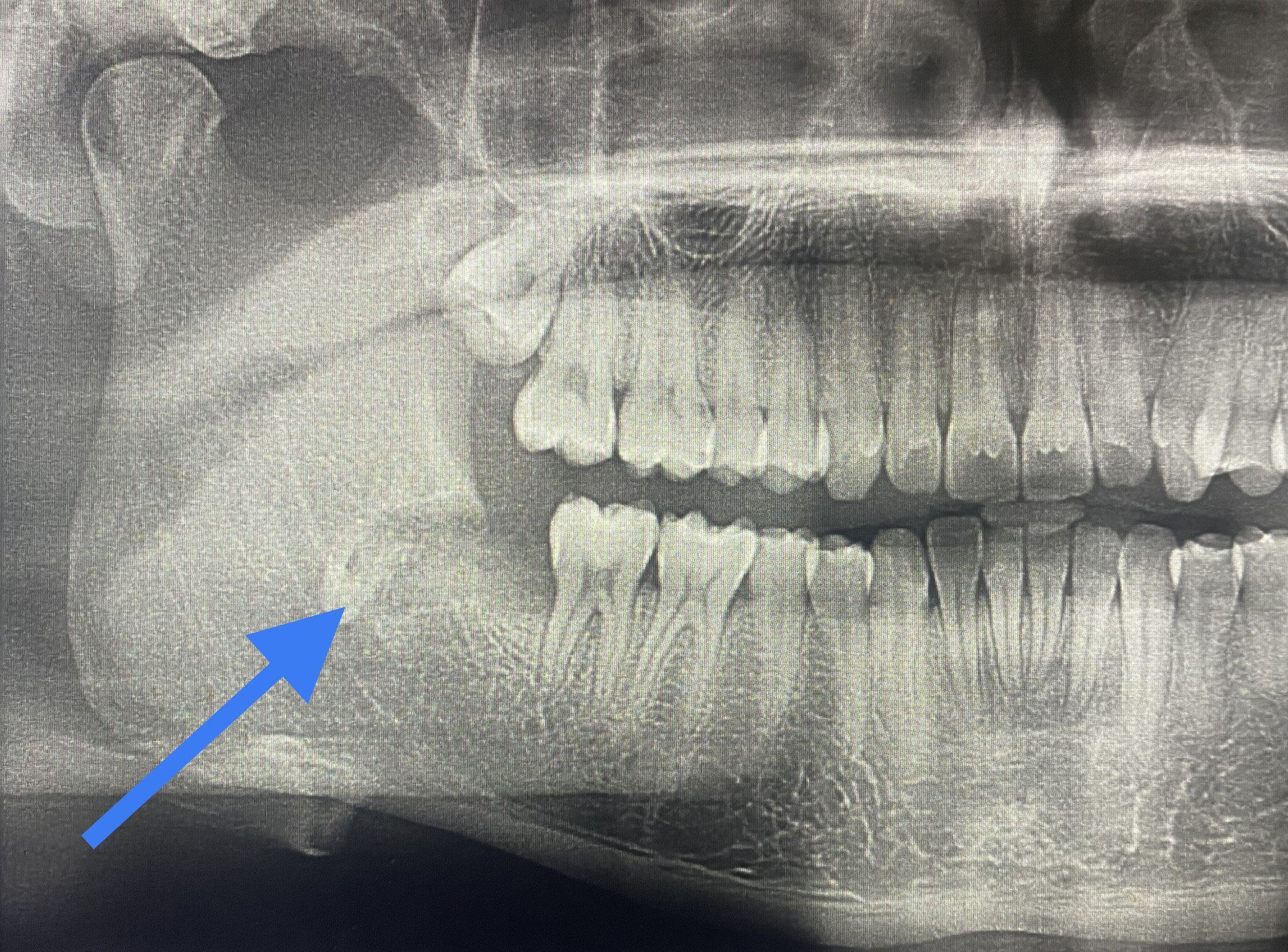Dentoalveolar Surgery
OPG x-ray with arrow pointing to retained and displaced root of wisdom tooth.
A variety of problems affecting the teeth, gums, jawbone and other soft tissues within the mouth may require your Dentist to refer you to Dr Chellappah for ongoing treatment. These include:
Extraction of a brittle previously root canal treated tooth
Extraction of teeth with multiple, large, curved roots
Extraction of a tooth fused to the jawbone (ankylosis)
Extraction of impacted or misplaced teeth
Removal of a retained tooth root
Surgery to help move an impacted tooth into its normal position (most commonly the upper canines)
Removal of a fluid filled sac (cyst) from within the jaw bone
Removal of bony outgrowths (tori) from the tooth bearing portion of the jaw or the palate
Biopsy and subsequent surgical removal of abnormal cancerous or non-cancerous tissue
How do your treat these conditions?
At your initial consultation, Dr Chellappah will take a thorough history, perform a comprehensive examination and review any x-rays of your mouth which your Dentist may have organised. He will advise if any further investigations are required.
Dr Chellappah will explain to you all the treatment options available to you and discuss any procedures and any associated risks in depth. He will also advise you of what to expect in the post-operative period.
Where will the dentoalveolar surgery take place?
Depending on your condition and your personal circumstances, you may have the option of having your procedure performed the day of your initial consultation. This will be performed under local anaesthesia with injections to numb the teeth, gums and adjacent structures so you do not feel any discomfort.
Sometimes, it is necessary to have your procedure performed in hospital under general anaesthetic. You will be asleep for the duration of the procedure. You will be admitted on the day of your procedure and usually will be discharged the same day following the procedure if you are well.

